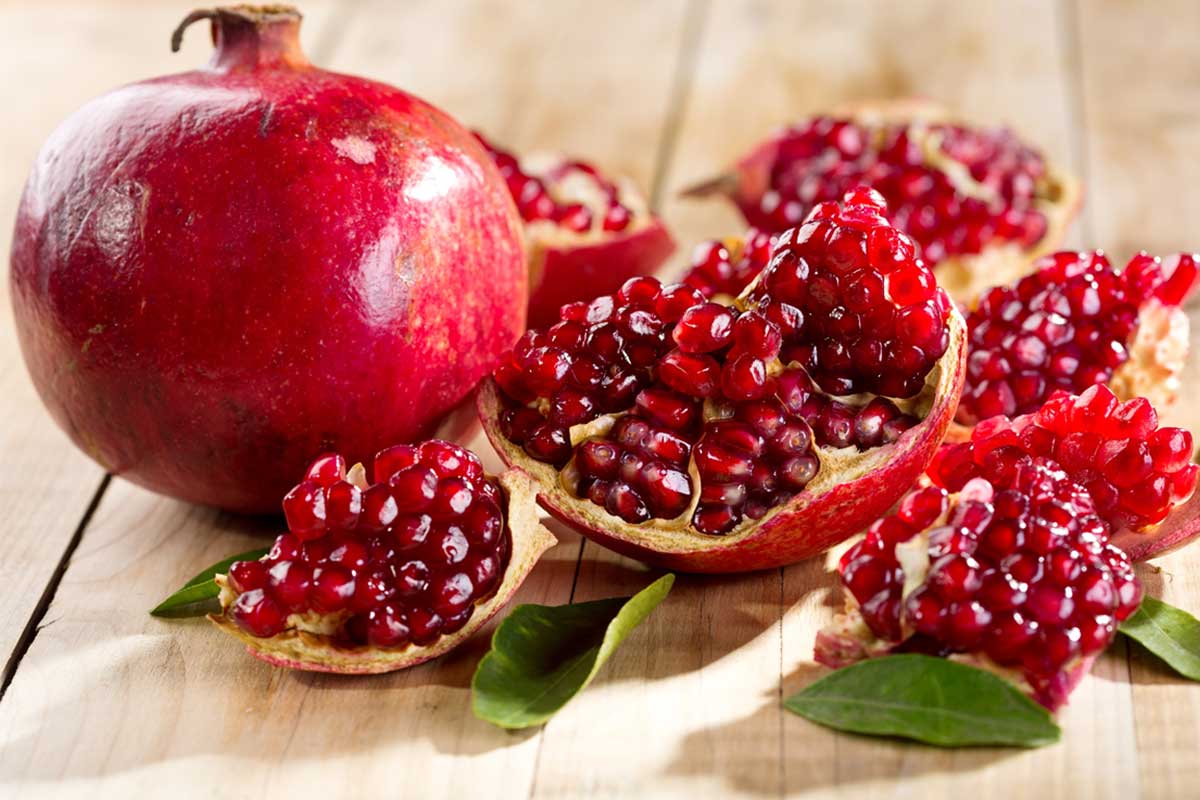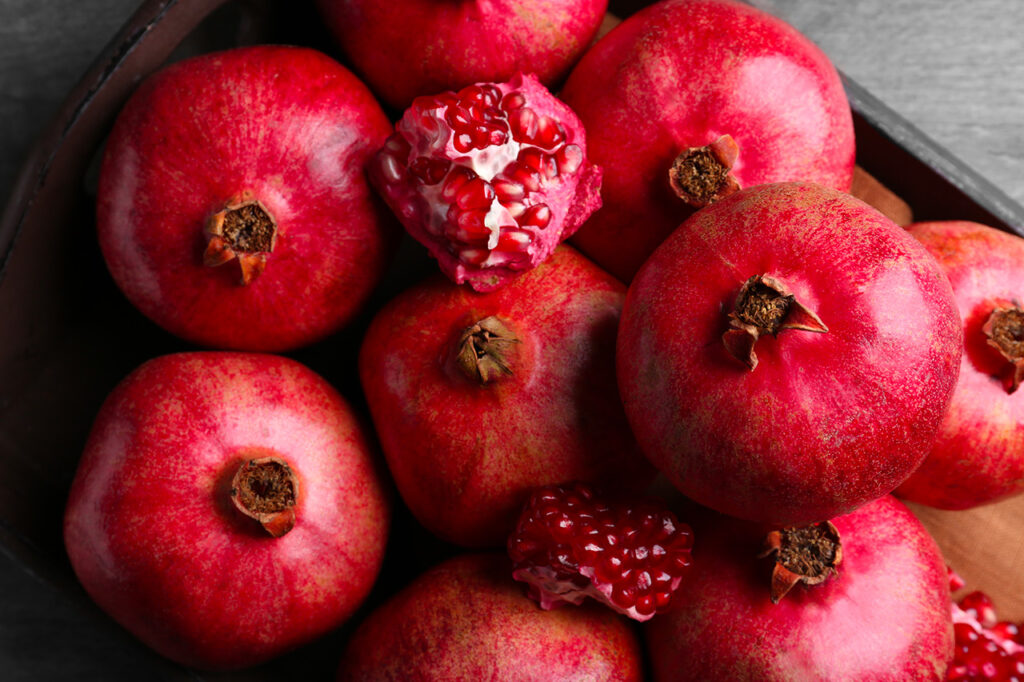The name “pomegranate” derives from the Latin word “malum” (apple) and “granatum” (with seeds). The same origin is recognized in other languages, such as “Pomegranate” in English and “Granatapfel” (apple with seeds) in German. In Old English, it was known as the “apple of Grenada.”
The name refers to the typical shape of the fruit, composed of approximately 630 ruby-colored arils or seeds. This fruit of extraordinary visual beauty possesses remarkable properties and benefits for our body. Some studies have referred to the pomegranate as “the anti-cancer fruit” due to its exceptional antioxidant qualities.
The pomegranate is a source of minerals, especially potassium (250 mg per 100 g of edible part) and phosphorus (22 mg per 100 g). It also contains significant amounts of sodium and magnesium. Pomegranate is a good source of soluble and insoluble fibers, beneficial for digestion and protecting intestinal health.
In addition, this fruit is associated with benefits such as weight reduction, cholesterol control, improved immune defenses and circulation, and protection against tumors (particularly prostate cancer and lymphomas).

Regular consumption of pomegranate has also been associated with benefits against benign prostatic hyperplasia and diabetes.
Our cultivation, carried out in harmony with the natural rhythms, enhances the fruit while preserving its authentic flavor, free from pesticide contamination that can be harmful to human health and the plant itself. Each tree has been carefully nurtured and protected by detailed agricultural practices.
Curiosity
One of the legends surrounding the pomegranate tells that it was a wonder of Mother Nature, from which everything originated and in which everything will end. Many ancient cultures, including the Greeks, Hebrews, Christians, and Babylonians, were fascinated by this unique fruit, considering it a true miracle, almost a terrestrial testimony of higher entities.
These beliefs were further reinforced by the evident tenacity and survival of the plant amidst adversities.
Hippocrates, the father of Medicine, evaluated the pomegranate fruit in his studies, praising its medicinal virtues, which are now deeply understood by modern science.


